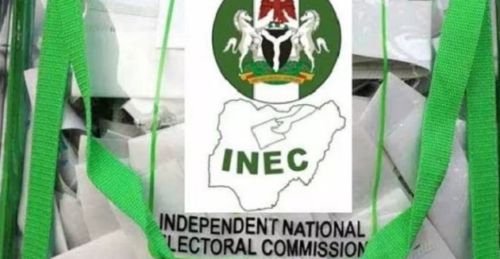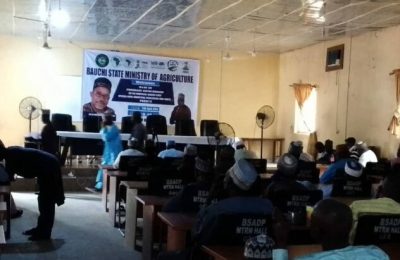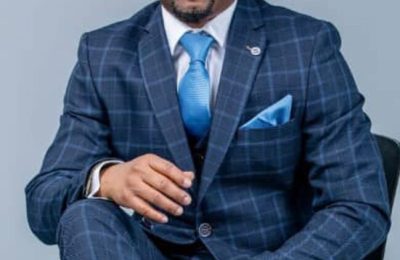

When I was an undergraduate student at Obafemi Awolowo University, I recall learning in my International Relations classes that Nigeria has a Manifest Destiny to watch over Africa and that West Africa is our immediate constituency, so we must use all our resources to influence the course of the sub-region.
This emphasised the part we played in forming ECOWAS and justified our involvement in previous peacekeeping missions in Sierra Leone and Liberia.
Later in my professional career, I realised that this principle, which is entirely justified, guided every diplomatic action our nation took. First, Nigeria is a huge horse with an imposing population and ample resources. Every country that possesses the kind of natural and people resources as ours has had a significant influence on events in the nations bordering its territory. The same defence is currently being used by Russia to support its ongoing conflict in Ukraine.

However, I discovered that many of our politicians and citizens still adhere to this policy stance, which is now merely a matter of theory. It’s no longer feasible in the true sense of the word, and our leaders don’t seem to understand this. On July 13, 2023, I said this during a conference organised for scholars and experts to discuss what Nigeria’s position within ECOWAS should be under Tinubu’s leadership.
At this conference, I made it abundantly clear that body language is important in diplomacy. We no longer command the kind of respect we once did in the comity of contiguous neighbouring countries, as evidenced by the fact that President Tinubu was picked as the head of ECOWAS and the West African countries made no efforts to shift their foreign policy directions in the immediate.
I also warned that if diplomatic care was not exercised, a time would come when these nations would no longer regard us as a nation to fear or revere as if we knew that the coup that occurred in the Nigerien Republic only a fortnight after the summit would validate our stance. Starting with the fact that successful coups need months of planning, the coup is a slap on Nigeria’s leadership of ECOWAS.

This suggests that before Nigeria assumed control of ECOWAS, the coup plotters had already set the ball rolling. Nevertheless, despite the fact that we made it clear during our investiture that we would not accept the subversion of civilian authority, the coup plotters continued with their plans rather than postponing them. This is the first indication to us that we are no longer as powerful as we once were and that we no longer command the same level of respect in the diplomatic community.

Back to the debate on what should be our actions in the Nigerien Republic at this time. We already knew from prior experience that once ECOWAS made a significant decision, it would be exclusively up to Nigeria to carry it through. As we all know, Nigeria accounts for about two-thirds of ECOWAS funds. Nigeria was responsible for bringing peace to war-torn Liberia and for the reinstatement of the Tejan Kabbar administration during the ECOWAS Monitoring Group (ECOMOG) era.
The question that now requires a response is whether we still possess this power.
While many have argued that Nigeria is in the minority in ECOWAS and that our President is only trying to implement ECOWAS’ resolution, we know that on many occasions, Nigeria’s position is ECOWAS’s position. That is the open truth.
First of all, we are aware that Nigeria’s minority status in ECOWAS decision-making mirrors that of the United States of America at the UN General Assembly. But the horsepower who pays the piper always finds a way to control the tone and speed of diplomacy.
Let us also examine the security within our own walls. There are already too many crises in our internal lives, and more emerge every day. We no longer have the kind of military Obasanjo used to reinstall the de Menezes administration in Sao Tome and Principe in the early 2000s, nor the power we had in the 1990s. What we currently face is an internal security issue that has overburdened the military forces.
So where will the military forces come from, if not from Nigeria, which is already preoccupied with an internal crisis, if ECOWAS is contemplating intervention in the Nigerien Republic? I also do not want us to overrate the strength of our armed forces because a lot of factors would determine how the military intervention in the Niger Republic would be.
God forbid the intervention in the Nigerien Republic became protracted; where are the military might and the equipment to sustain such protracted warfare? And this cannot be totally ignored as the military governments in Mali and Burkina Faso are already making strong rhetoric. Even in the diplomatic circle, the gossip about the likely involvement of the Wagner Group is already being mouthed.
Let’s talk about the equipment. As someone who has done a sizable number of research on military history, I know we have the human power but we lack the financial and other necessary willpower.
Unlike Egypt or South Africa military that have capacity to shift their industry to “wartime production”, our own military always have to place order and import every piece of equipment no matter how miniature. The recent procurement of 13 Super Tucano by former President Buhari is a case in point. Those jets cost Nigeria nearly $600 million. Now, aside from the money, the first batch of what we ordered in 2017 took four years to be delivered.
So, assuming we were held down in a protracted warfare in Niger, are we going to be waiting for that long period of years? Also, do we have the funds to continuously place order for military gadgets simply because we want to restore civilian administration in a neighbouring country? We simply do not have what it takes to fight this battle.
To support their stance on Niger, some are even citing events that occurred in The Gambia in 2017 when ECOWAS forces were able to restore democracy when Yahya Jammeh refused to step down from office following his defeat. In January 2017, the troops entered The Gambia. Senegalese, Ghanaian, Togolese, and Malian were involved, but the Nigerian military was in the majority.
Nigeria also single-handedly contributed all the naval resources as well as the aircraft aside from the funds. The difference of Gambia and what is happening in Niger Republic, however, is the fact that the Gambian military tacitly supported the ECOWAS troops. In fact, the Gambia Chief of Army Staff made it clear that the Gambian forced would stand down. If the Gambian military had backed Jammeh, it would not have been that simple.
Also, Gambia is not our immediate neighbour. Even Sierra Leone or Liberia are not our immediate neighbours. This would be the first time ECOWAS is toying with the idea of embarking on foreign intervention in our neighbourhood. God forbid it happens and turns protracted, we will suffer more as any form of surreptitious retaliation would knock our northern axis off its feet. A nation that has porous borders as ours must think twice before sanctioning such moves.
To avoid wasting too much time on this, let me briefly summarise other things we have to consider. First is the fact that the mood of the country does not support military intervention in Niger. The legitimacy of President Tinubu is still up for debate, and the issue is still in court. Buhari also left the country in a very abysmal shape.
We are more divided today than we were two years ago. Boko Haram and ISWAP are already tormenting us from the northern border. What would now happen if a military junta that views us as adversaries actively supports these terrorists?
Most importantly, no coup succeeds without the support and approval of the people. So far, everything I have seen in Niger showed that the coup is very popular with the citizens. Of course, they are making mistakes of their lives by believing that the military would do better than the civilian.
They would definitely live to regret it. However, since the citizens are happy, what makes Nigeria thinks that it has the sole responsibility to upturn what people are happy with? We must not make a diplomatic mistake that will burn our hands in the long run.
Nigeria should restrict the punishment being meted out to the Nigerien Republic to the economic sphere rather than going down this path, which will backfire on us. Nigeria must make sure that the member nations follow the sanctions that ECOWAS has already established.
In order to quickly hand back control to the civilians, we should keep up the dialogue with the junta while excluding the use of force from the discussion. Most crucially, if a Western power wants to overthrow the junta, France has more resources to do it.
After all, France has more to gain and lose in Niger than anyone else. France receives over 60% of the nation’s uranium, and the French corporation Orano has even more to lose. Consequently, we ought to let France pursue its conflict in Niger.
Finally, we have to be careful in our belief that bringing and restoring democracy to West African countries is part of our Manifest Destiny. When they began imposing clueless leaders on the world beginning from 1960s, the United States of America held the very same belief.
We are all aware of the global consequences today. Can Nigeria afford to have its neighbours turn against it? My humble opinion is that it would be incorrect for Nigeria to join the “use of force” movement. We have no right to infringe on people’s rights and make decisions for them if they assert that these are the individuals they want. Once our democracy is working well, our leaders have nothing to fear.
Once we prioritise Nigeria’s development, every other thing will fall in line.
Therefore, leading by example is the finest approach to leadership in West Africa. President Tinubu needs to act in a way that will earn Nigeria respect among the ECOWAS nations. We desire to see democratic administrations in place throughout West Africa?
Then, let us demonstrate to them the benefits of democracy. We wouldn’t need to coerce them into adopting the system once they see that every citizen of Nigeria benefits from democracy because our deeds and actions would speak louder than a billion voices.
Stephen Adewale is the Director of Africa Dialogue Mission (ADM) and Ondo State’s Chairman of the Social Democratic Party (SDP)
READ ALSO FROM NIGERIAN TRIBUNE









